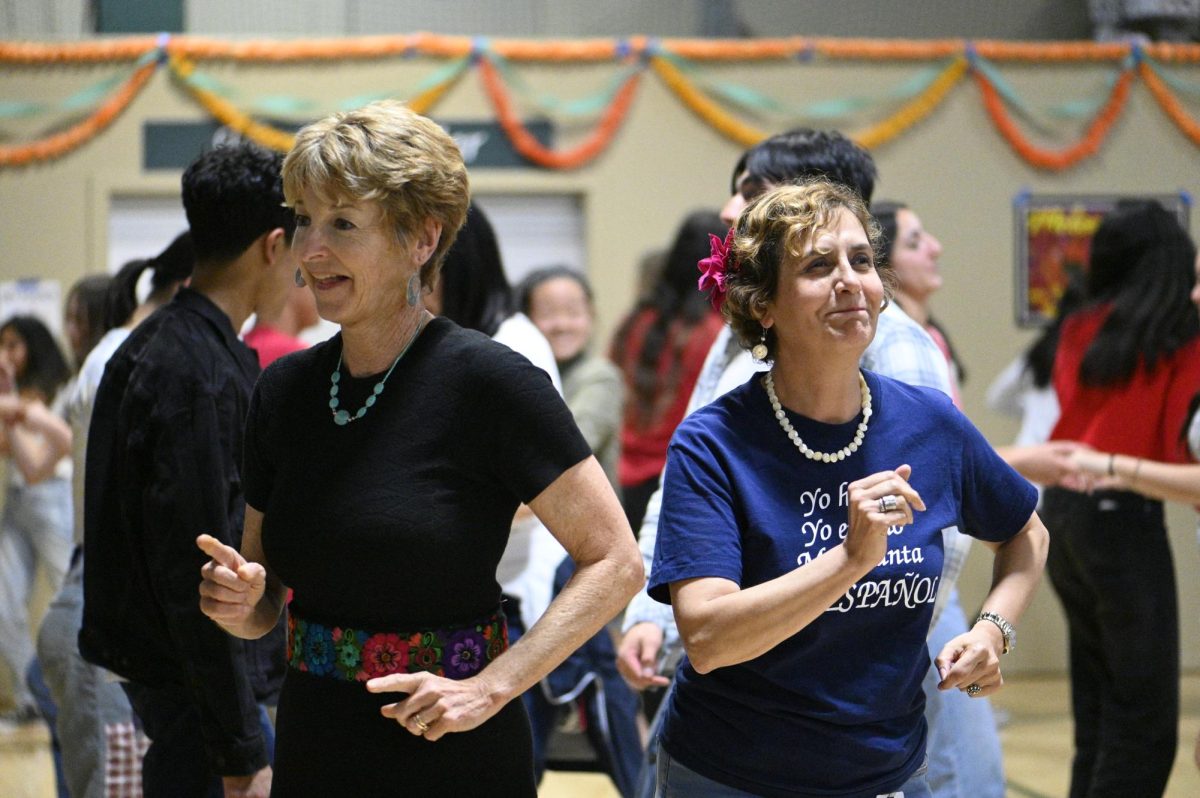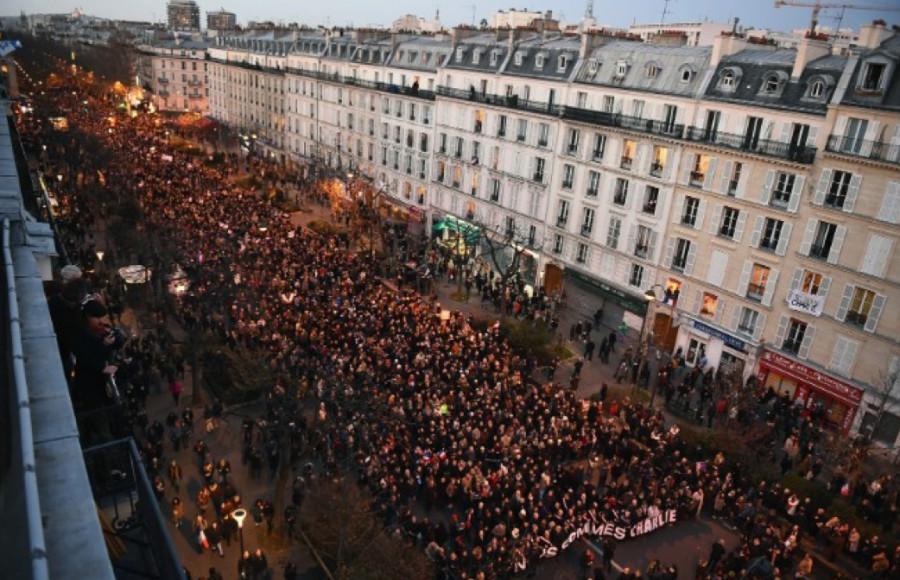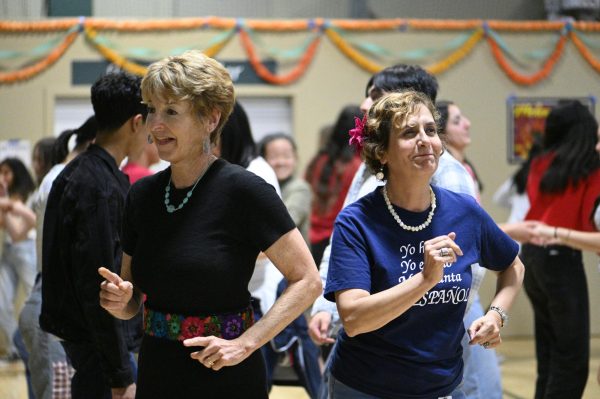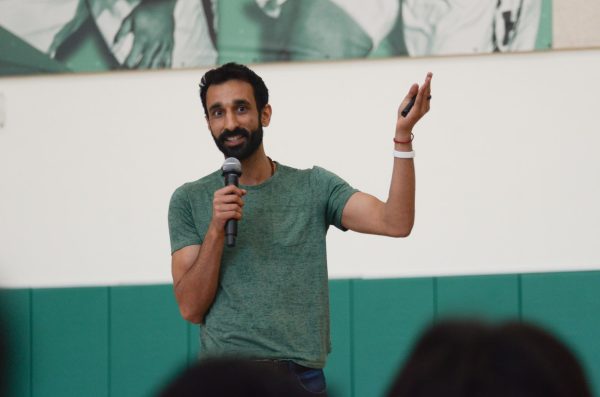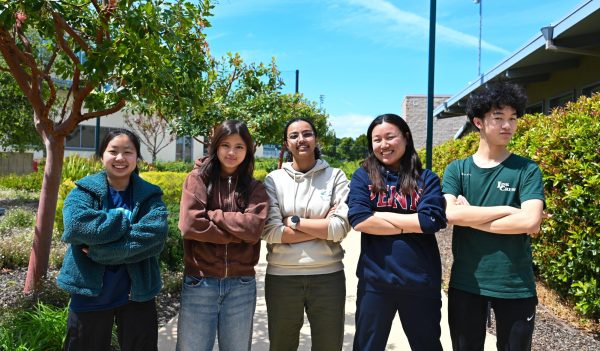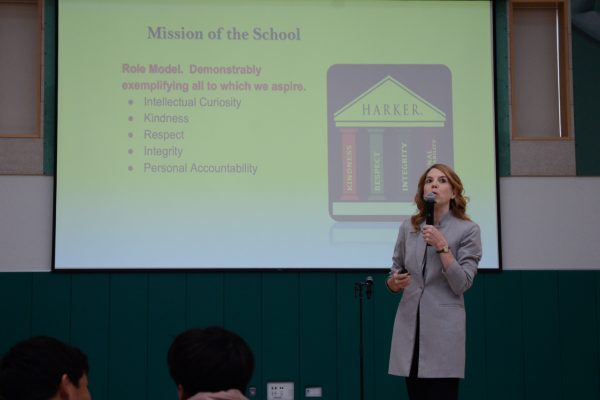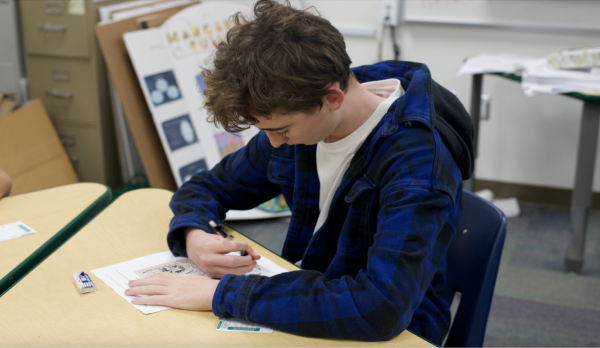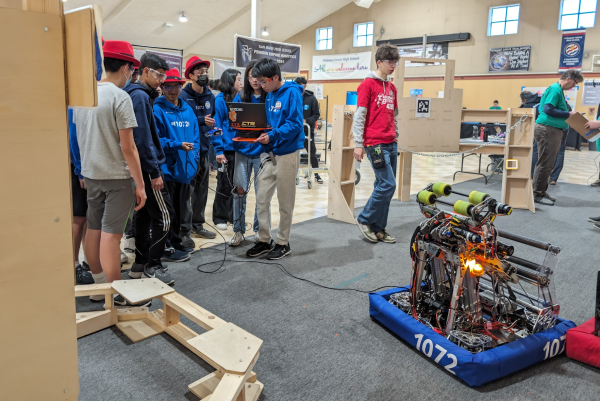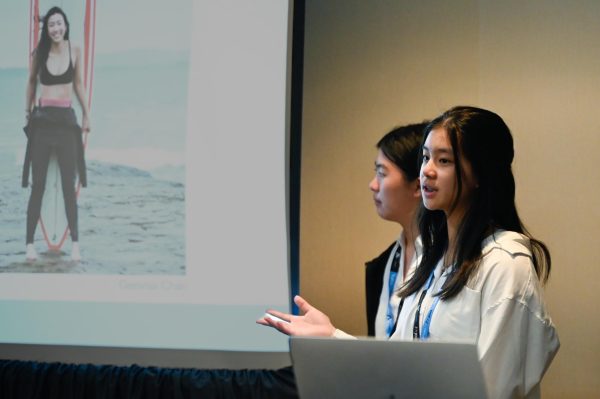France in state of national emergency following attacks in Paris
November 13, 2015
France declared a state of national emergency and imposed border controls after terrorist attacks in Paris left over an estimated 120 people dead tonight.
According to French and international media outlets, reports first surfaced of a shooting outside two restaurants in Paris’ 10th arrondissement, which is situated on the right bank of the River Seine.
The next attack was an explosion thought to be caused by suicide bombers at a bar outside France’s national stadium, Stade de France. Seventy-thousand fans had traveled to the stadium to watch France play Germany in a soccer match, and following the explosion, the spectators gathered onto the pitch. No casualties have yet been reported from within the stadium.
French President François Hollande was among the sea of soccer fans in attendance at the stadium. At the sound of the first explosion, security evacuated Hollande to the Elysee Palace, whereupon he learned of the magnitude of the attacks and called an emergency cabinet meeting to discuss the events as they unfolded.
By 1 a.m., Hollande had declared mainland France and Corsica in a state of emergency, tightening control of the nation’s borders. The French government has since deployed 1,500 troops to Paris, and exhorted residents to remain indoors.
According to French media outlets, the third attack, which was the largest, took place at The Bataclan in Paris’ 11th arrondissement. Tonight, the popular music venue was hosting multiple acts and had sold-out of tickets. American band Eagles of Death Metal was scheduled to play a set.
Early reports indicate that the terrorists took over 100 audience members hostage, and killed an at least an estimated 100. During a police raid of the music hall, at least two attackers were killed.
At 2:39 a.m. CET, head of Paris police Micheal Cadot revealed in a statement that all of the attackers are believed dead, but that there remains the possibility of accomplices still at-large. Preliminary police reports indicate around eight men as the perpetrators of the attacks.
The Associated Press reports that police officers took physically unharmed survivors from the Bataclan to a local crisis center for psychological support.
Stephanie Scaglia (10), who has family living across Paris, shared her reaction upon hearing of the attacks.
“My dad texted me,” Stephanie said. “I felt really shocked and scared for my family, and I immediately asked if my cousins were [okay] and he said ‘yes,’ because they lived on the other side of Paris.”
Stephanie has since contacted her family as well.
In 2014, Facebook launched “Safety Check,” a feature which allows users to alert friends and families of their safety during times of crisis. In the past, Facebook has only activated the feature during natural disasters, but now plans to also activate the feature during “human disasters.”
The last time France declared a state of national emergency was in November 2005, following the deaths of immigrant teenagers Zyed Benna and Bouna Traoré and the ensuing riots. France remained in a state of emergency for approximately one month, until early January of 2006.
In accordance with French law, “imminent danger following serious breaches of law and order” constitutes the state of national emergency, during which authorities may conduct house searches during both day and night, restrict travel to certain times and locations, and place areas on lockdown.
While no group has claimed responsibility for the attacks, Islamic State partisans and sympathizers have posted celebratory messages on social media.
The attacks follow a string of recent terrorist activity in Paris. Last January, Islamic militants attacked headquarters of French newspaper Charlie Hebdo. Google Maps reveals the Bataclan to be a mere seven-minute walk from Charlie Hebdo’s offices.
In the maelstrom of tonight’s attacks, some Paris residents and visitors have been left unable to return to their homes and lodgings. Parisians have taken to Twitter and are using the hashtag #PorteOuverte, which means “open door,” to offer safe spaces to those without shelter for the night. Similarly, in the U.S., social media users are tweeting the hashtag #strandedintheUS to offer shelter to those who cannot travel back to France due to the border restrictions.
Social media users across the globe are using #prayforparis to relay messages of support and convey their solidarity.
Follow Harker Aquila for continued coverage of the attacks.































![Setter Emma Lee (9) sets the ball to the middle during the match against Pinewood on Sept. 12. “[I’m looking forward to] getting more skilled, learning more about my position and also becoming better friends with all of my teammates, Emma said.](https://harkeraquila.com/wp-content/uploads/2023/09/DSC_4917-2-1200x795.jpg)



































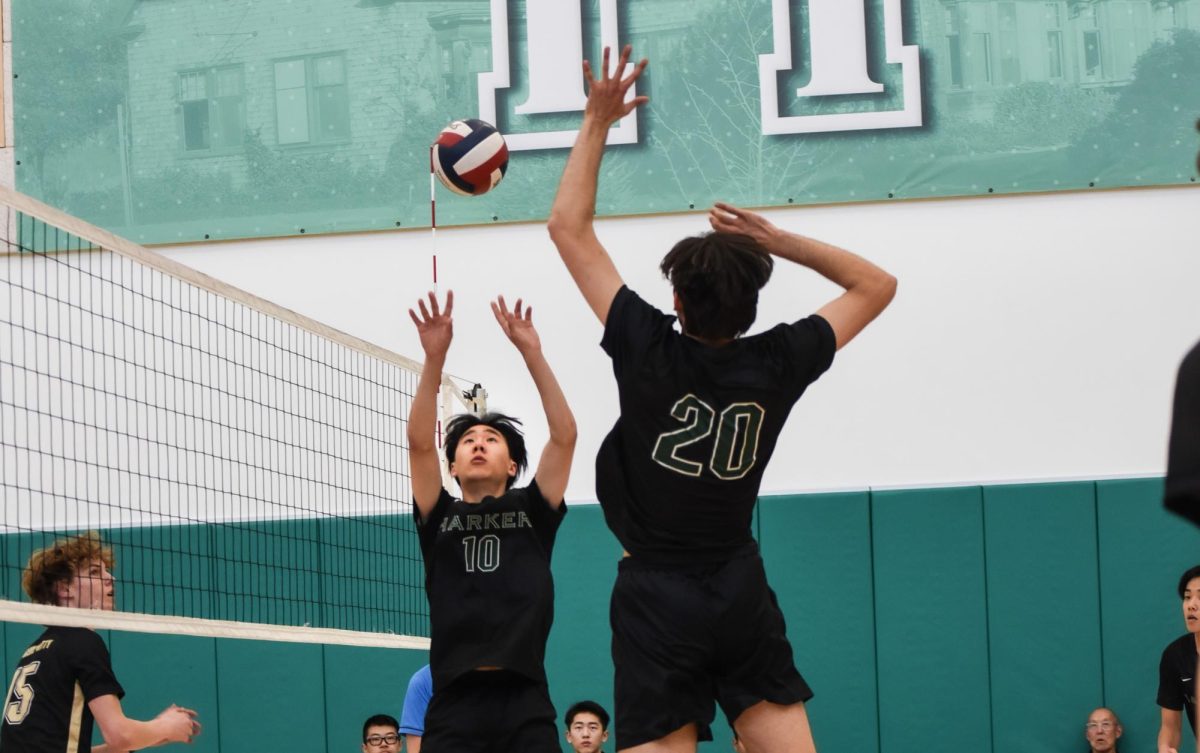
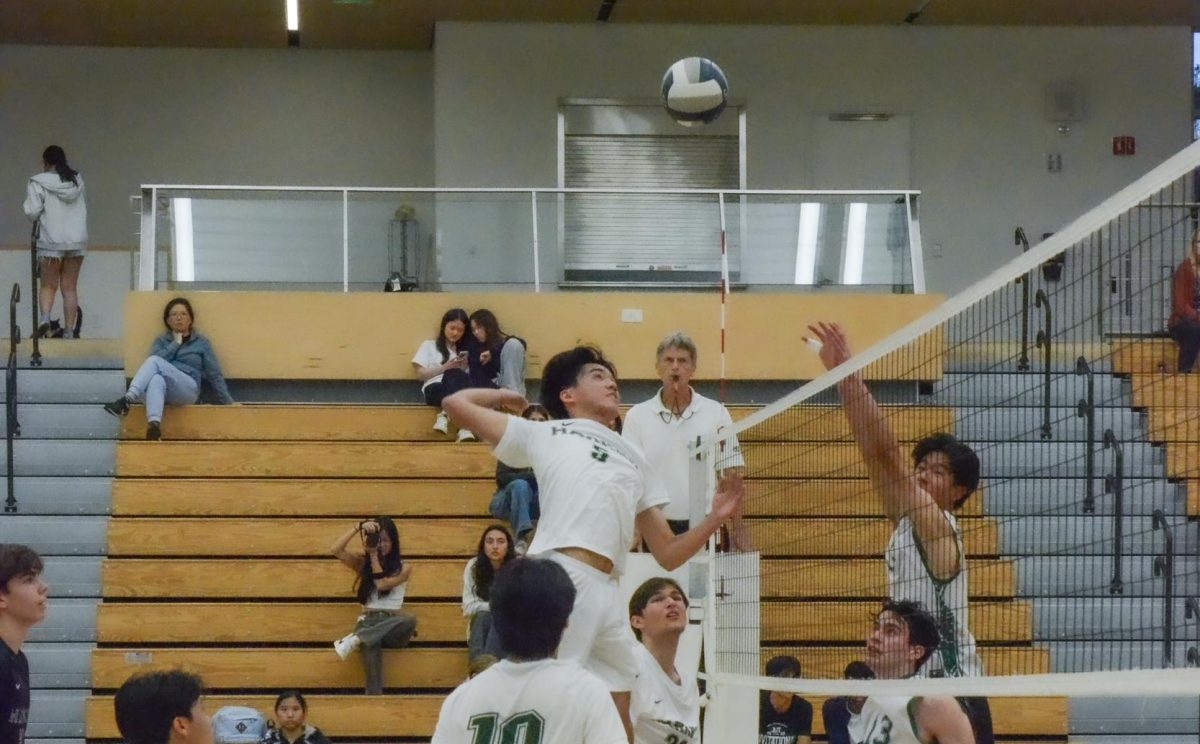
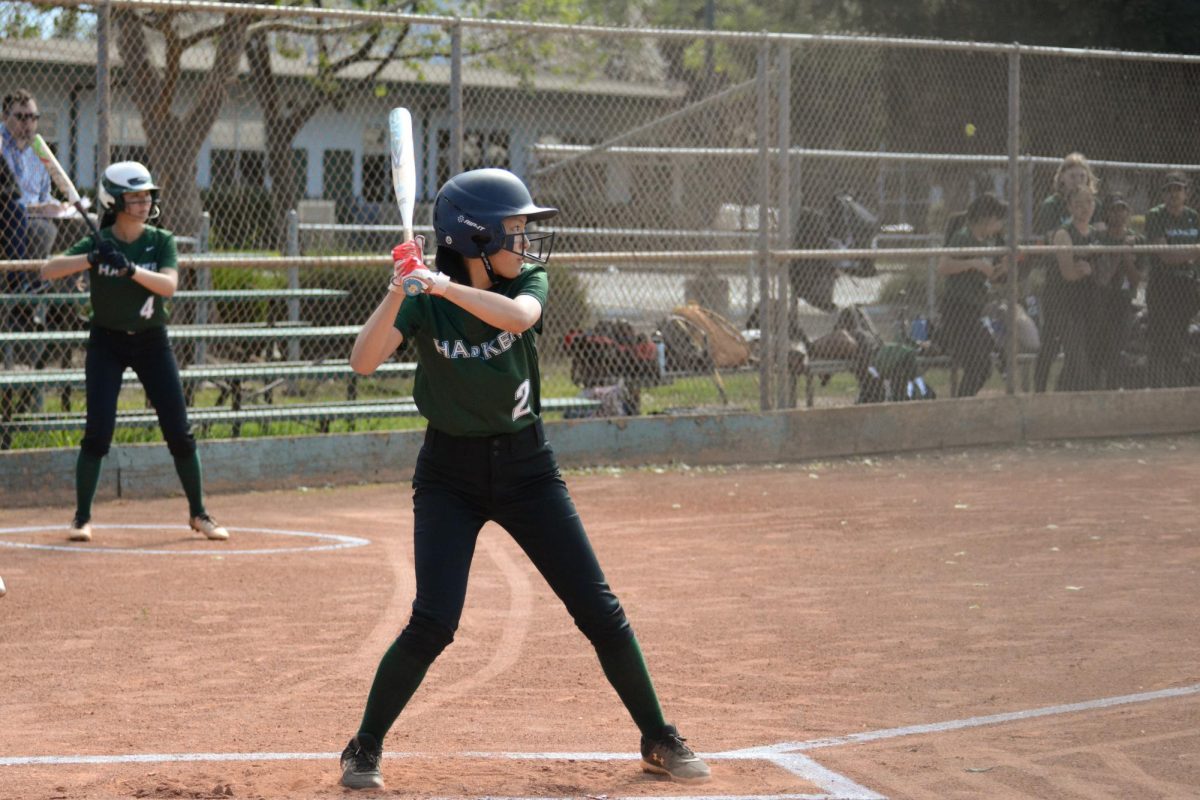































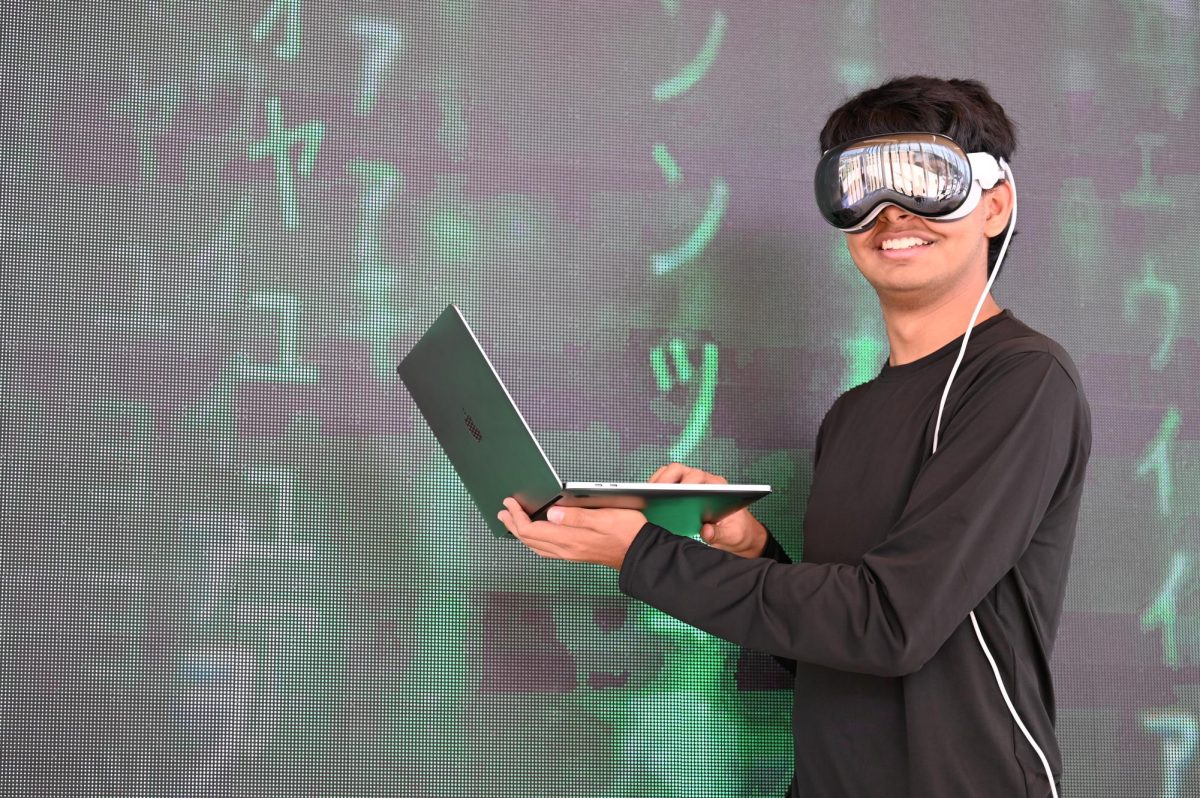









![“[Building nerf blasters] became this outlet of creativity for me that hasnt been matched by anything else. The process [of] making a build complete to your desire is such a painstakingly difficult process, but Ive had to learn from [the skills needed from] soldering to proper painting. Theres so many different options for everything, if you think about it, it exists. The best part is [that] if it doesnt exist, you can build it yourself, Ishaan Parate said.](https://harkeraquila.com/wp-content/uploads/2022/08/DSC_8149-900x604.jpg)


![“Animation just clicked in a way. I had been interested in art, but that felt different. [Animation] felt like it had something behind it, whereas previous things felt surface level. I wasnt making that crazy of things, but just the process of doing it was much more enjoyable, Carter Chadwick (22) said.](https://harkeraquila.com/wp-content/uploads/2022/08/Screen-Shot-2022-08-16-at-9.44.08-AM-900x598.png)


![“When I came into high school, I was ready to be a follower. But DECA was a game changer for me. It helped me overcome my fear of public speaking, and its played such a major role in who Ive become today. To be able to successfully lead a chapter of 150 students, an officer team and be one of the upperclassmen I once really admired is something Im [really] proud of,” Anvitha Tummala (21) said.](https://harkeraquila.com/wp-content/uploads/2021/07/Screen-Shot-2021-07-25-at-9.50.05-AM-900x594.png)



![“[Volleyball has] taught me how to fall correctly, and another thing it taught is that you don’t have to be the best at something to be good at it. If you just hit the ball in a smart way, then it still scores points and you’re good at it. You could be a background player and still make a much bigger impact on the team than you would think,” Anya Gert (’20) said.](https://harkeraquila.com/wp-content/uploads/2020/06/AnnaGert_JinTuan_HoHPhotoEdited-600x900.jpeg)

![“Im not nearly there yet, but [my confidence has] definitely been getting better since I was pretty shy and timid coming into Harker my freshman year. I know that theres a lot of people that are really confident in what they do, and I really admire them. Everyones so driven and that has really pushed me to kind of try to find my own place in high school and be more confident,” Alyssa Huang (’20) said.](https://harkeraquila.com/wp-content/uploads/2020/06/AlyssaHuang_EmilyChen_HoHPhoto-900x749.jpeg)













![“My slogan is ‘slow feet, don’t eat, and I’m hungry.’ You need to run fast to get where you are–you arent going to get those championships if you arent fast,” Angel Cervantes (12) said. “I want to do well in school on my tests and in track and win championships for my team. I live by that, [and] I can do that anywhere: in the classroom or on the field.”](https://harkeraquila.com/wp-content/uploads/2018/06/DSC5146-900x601.jpg)

![“I think getting up in the morning and having a sense of purpose [is exciting]. I think without a certain amount of drive, life is kind of obsolete and mundane, and I think having that every single day is what makes each day unique and kind of makes life exciting,” Neymika Jain (12) said.](https://harkeraquila.com/wp-content/uploads/2017/06/Screen-Shot-2017-06-03-at-4.54.16-PM.png)





